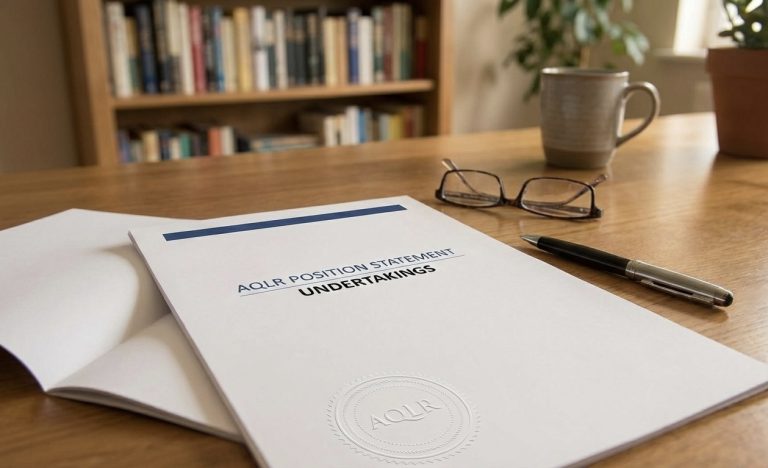PRESS RELEASE
(For Immediate Release)
Issued by the Association of Qualified Legal Representatives (AQLR)
Date: 9 October 2025
President of the Family Division adopts AQLR guidance on dual QLR-criminal solicitor roles
The Association of Qualified Legal Representatives (AQLR) welcomes the landmark judgment of Sir Andrew McFarlane, President of the Family Division, in K v P (Criminal Solicitor as Court-Appointed QLR) [2025] EWFC 321, handed down on 6 October 2025.
In this case, the President adopted the four-factor framework proposed by the AQLR to guide courts in deciding whether to terminate the appointment of a court-appointed Qualified Legal Representative who is also acting as a criminal defence solicitor for the same party in related criminal proceedings.
AQLR’s framework (now endorsed by the President)
The judgment confirms that where a court-appointed QLR is, or becomes, the party’s criminal representative on overlapping facts, the court should consider whether that dual role:
- Compromises the actuality or appearance of QLR independence;
- Undermines the protective purpose of the QLR scheme;
- Creates a real or perceived conflict of interest; or
- Introduces a material disclosure or cross-jurisdictional imbalance.
If any of these factors apply, the court should ordinarily discharge the appointment and appoint a replacement QLR.
AQLR Chair Paul Chiy said:
“This decision reinforces the integrity of the QLR scheme and the welfare-centred purpose of the Domestic Abuse Act 2021 framework. A court-appointed QLR occupies a neutral, function-limited role designed to help vulnerable witnesses give their best evidence. When that same individual also acts as a criminal defence solicitor for the alleged perpetrator, the protective intent of the scheme risks being turned on its head. The President’s adoption of our four-factor test provides a clear, proportionate basis for courts to protect witness confidence while maintaining fairness for both parties.”
Context
The QLR scheme, established under Part 4B of the Matrimonial and Family Proceedings Act 1984 (as inserted by the Domestic Abuse Act 2021), prohibits in-person cross-examination of alleged victims by alleged abusers and enables the court to appoint a QLR to conduct the questioning in a neutral and controlled manner. The AQLR represents the interests of practitioners undertaking this specialised function and provides training, ethical guidance, and advocacy for consistent national standards.
Key takeaway
The President stressed that while no blanket prohibition applies, it will be ‘difficult to contemplate many cases’ where it remains proportionate for a lawyer to continue as a court-appointed QLR while simultaneously acting as a party’s criminal solicitor in related proceedings.
For media enquiries:
Paul Chiy | Chair, AQLR
📧 info@aqlr.org.uk | 🌐 www.aqlr.org.uk





